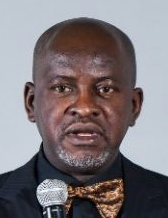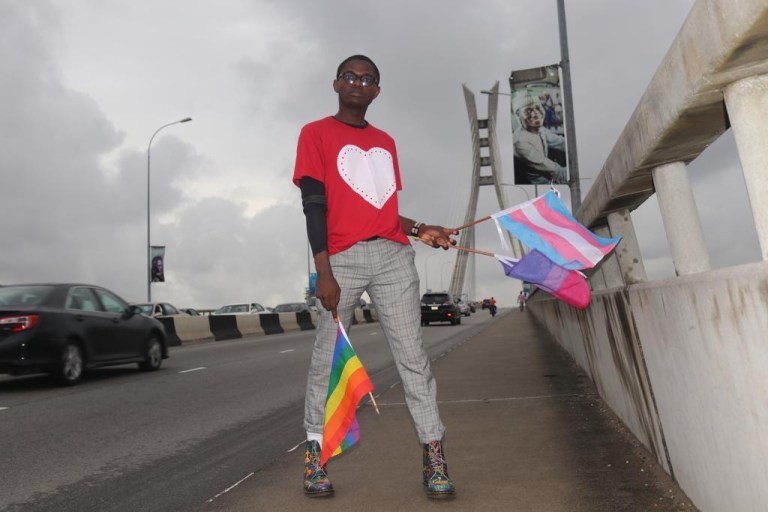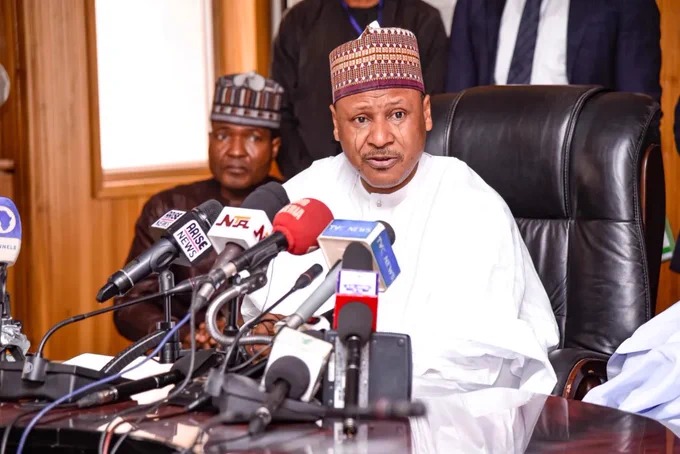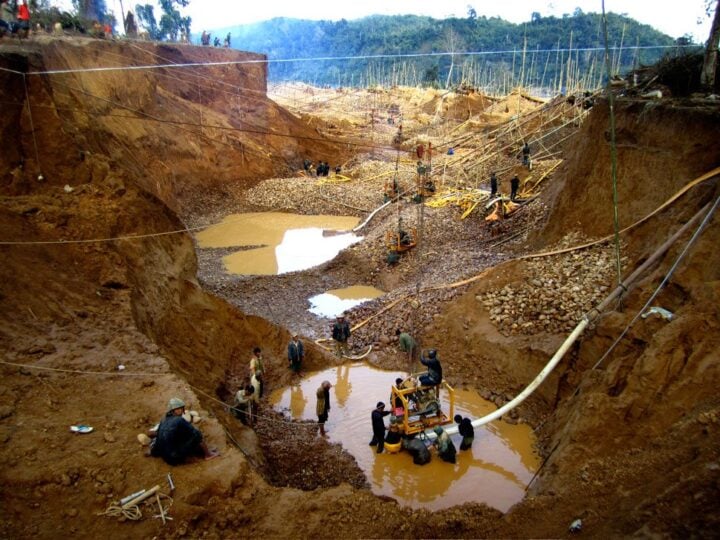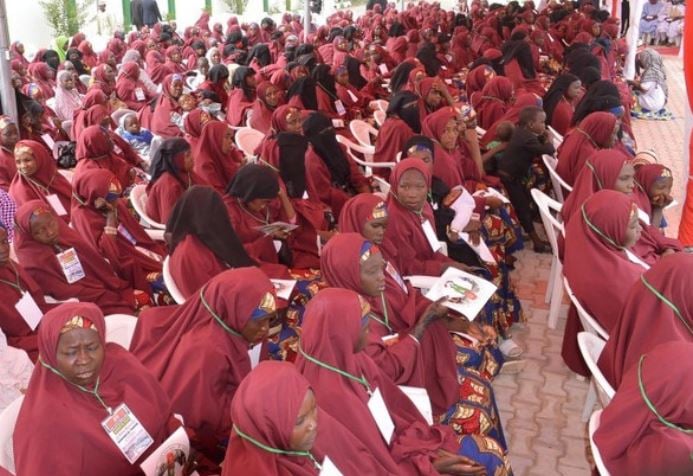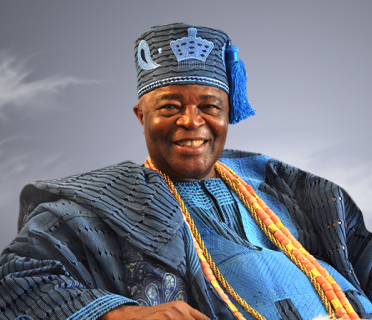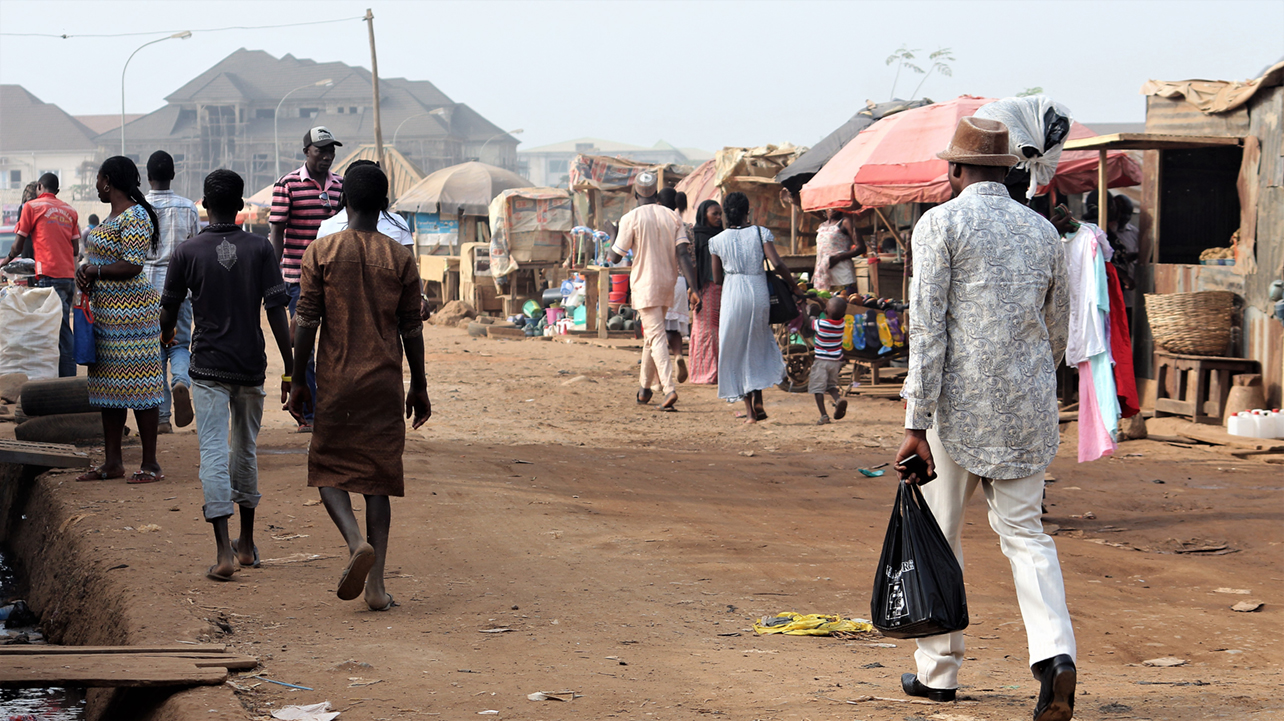Photo: Joel Pride, a gay who relocated to UK from Nigeria
Nigeria’s lesbian, gay, bisexual, transgender, queer (LGBTQ) community is currently having a lingering headache.
The latest bout of this persistent headache occurred recently in the Ekpan community of Delta State where 67 persons suspected to be homosexuals were arrested by the police at a gay wedding. This was on Sunday, August 27, 2023, according to media reports. This scenario begs the question: Is the sexual character of the Nigerian society changing?
It’s a simple question. Like most simple questions, the answer(s) may depend on the direction of the wind. This particular question is however rooted in the possibility that a growing community of Nigerians self-identify (secretly or openly) as gay or lesbian even as reactions and inherent attitudes associated with these growing social phenomena have been varied.
While it is perfectly normal to contemplate the implications, including the healthcare and human security concerns, of new gender identities and personalities, we seem content with reviewing these countercultural lifestyle choices through the lens of culture and tradition, and religion.
Advertisement
Yet, like religions, African cultures and traditions are a calabash of beliefs, taboos and open secrets.
Human inertia and possibilities
For almost forever, myths, mysteries, folklore, intergenerational knowledge and insights, decrees, preferences and prohibitions have been interpreted and advanced by our elders, spiritual leaders, communities and families in all shapes, hues and formats, from the noble and constructive to the undesirable and utterly dreadful: like social governance rules that prescribe respect for the elderly, traditional and civil authority; like the concept of communal responsibility for the safety and well-being of children and vulnerable citizens; like the stigma visited on albinos, mental health disorders and persons living with disabilities; and like disgraceful patriarchal systems and widowhood rites that spur abuse and gender inequality, stripping widows and females of their dignity and inheritances, just to list a few.
Advertisement
Thankfully, we still retain many of the prosocial and egalitarian principles of our traditional value systems. Many abhorrent practices and customs are now widely recognized as human rights abuses. Indeed, the ultimate goal of a more inclusive society devoid of malice, marginalization and discrimination can be achieved through deliberate steps towards increased engagement and humanitarianism.
Engendering a climate of humane interpersonal and community relations would require establishing a set of social transparency principles. This means promoting tolerance, communal inclusion and empathy for all shades of individuals, including social outliers. Currently, national, public opinion on “same sex” activities swings between outright condemnation and loud silence. Subconsciously, we seem to be stuck between the orthodoxy of our moral codes and emergent social attitudes and norms.
“We don’t even discuss it, it’s like a collective inability to face reality” Olayide Akanni, executive director of Journalists Against AIDS (JAAIDS) Nigeria, a media-based organization, said recently. “Yet, we have gays and lesbians in our midst, it’s a taboo topic for many families, the fear of stigma is real, as a people I reckon we prefer to act like they don’t exist or even matter in society, but sooner rather than later, we must begin to openly examine the ramifications of this emerging sociology on our society and development agenda.”
“Can we even start the public conversation by treating folks who self-identify as LGBTQ first and foremost as citizens and human beings with civil liberties and constitutional rights?” Akanni asks.
Advertisement
I reckon our personal and collective discomfort, pity, anger or venom towards LGBTQ culture is simple: intimacy, sex, sexuality and gender identities are like contraband goods while nonbinary gender identification is perceived as an unfamiliar, offshore phenomenon. These attitudes come from our calabash of social and religious taboos. But taboos and the myths behind them often expire.
We now have frank, informed and sometimes exhilarating discussions about previously touchy topics like inter-faith relations, sexism, rape, incest, sexual harassment, gender-based violence, sexual and reproductive health, mental health and well-being, divorce, teenage pregnancies, alcoholism, child abuse and drug abuse. There was also a season in society when persons with physical and cognitive disabilities were often denied adequate healthcare and mocked by their families and friends, either secretly or openly. That was a season of shame and ignorance. We now appear to be in another long season of considering, denying and camouflaging the reality of LGBTQ culture.
As a habit, it seems we tend to deride or ignore what we don’t easily understand. But then again recent developments in psychiatry, medical ethics and policymaking offer us valuable lessons to draw from.
In 2004, the WHO Collaborating Centre for Research and Training in Mental Health, Neurosciences and Drug and Alcohol Abuse at the University of Ibadan published a study on mental health which estimated that more than 75% of persons with severe forms of anxiety, depression and substance abuse in Nigeria rarely get any treatment for their conditions. 19 years after this study, we have a freshly minted mental health legislation and anecdotal evidence and data from relevant agencies which indicate the rising prevalence of mental, neurological and substance use disorders across our urban and rural centers.
Advertisement
Enacted into law in January 2023, the National Mental Health Act, 2021, establishes human rights protections and promotes community-based approach to caring for patients. Hailed as a progressive and significant step forward in the march to achieving Nigeria’s universal health coverage objectives, the new health law offers a roadmap for other countries on the continent, as it overhauls the colonial era Lunacy Act of 1958 which succeeded the Lunacy Ordinance of 1961.
Re-exploring social and policy frameworks for LGBTQ
Advertisement
While we tend to attribute same sex and nonbinary gender behavior to foreign or western cultural norms, the history and ethnography of African civilizations supplies us with evidence of ancient cultures that tolerated diverse sexualities and gender expressions, according to the historian Bright Alozie in his 2021 paper titled, “Did Europe Bring Homophobia to Africa?”
Dr. Alozie’s thesis is that imperial Europe exported homophobia to Africa in order to impose its cultural, political and religious concepts on the indigenous value systems of our forebearers.
Advertisement
While the jury is still out on this thesis, the occurrence of transgender, queer and same sex behavior across the country is a present-day reality that needs no hypothesis: visible LGBTQ identifiers include the late Dare Odumuye (1966 – 2007), a Nigerian sexual rights activist; Justin Fashanu (1961 – 1998), the world’s first openly gay pro-soccer player; Ademola (Bisi) Alimi; Davis Mac-Iyalla, Ifeanyi Orazulike, Jude Dibia, Olumide Makanjuola, Rashidi Williams, Rotimi Fani-Kayode (1955 – 1989), Rowland Jide Macaulay, Unoma Azuah, Bob Actor, the Calypso King of the 1980s and the late queer icon “Area Scatter” – real name, Uzoma Odimara – a cross-dresser and entertainer who enjoyed wide acceptance in eastern Nigeria in the early 1970s.
In the eyes of the law, the above listed persons are technically (and posthumously) in the same police net as the 67 Ekpan suspects under Nigeria’s Same Sex Prohibition Act which bans consensual same sex and ‘amorous relationships” and prescribes jail terms of up to 14 years for offenders. The act came into force in 2014.
Advertisement
In October 2020 at the Federal High Court in Lagos, Justice Rilwan Aikawa dismissed a case against 47 men charged with public displays of affection due to the repeated failure of the government’s lawyers to appear in court and call witnesses. Defense and prosecution lawyers in this case told Reuters that nobody had yet been prosecuted under the so-called anti-gay law.
Over the last several years, I have observed abusive citizens behavior and police maltreatment towards several persons based on their perceived or real sexual orientation in urban or peri-urban communities. In one instance, the suspects were a group of nurses and health workers attached to a clinic frequented regularly by commercial sex workers and were deemed guilty by association by law enforcement. Two of the nurses, Blessing and Mahmud (not real names) said they would frequently give free medical services and gifts to the cops to avoid ‘wahala’ amid threats of being ridiculed and/or arrested.
Clearly, the issue is not so much society’s confrontation with supposedly imported norms. The real challenge is human inertia. Our re-examination of the politics and sociology of gender and sexual identity would take us though a complicated and tedious maze of unravelling enduring religious, socio-cultural and sexual taboos. Then there is the human rights angle, ensuring that society doesn’t go down the path of encouraging mob action, domestic violence, hate crimes and repression of citizens.
It would be interesting to know President Bola Ahmed Tinubu’s point of view and policy direction on this matter. Will his administration retain the status quo or move the nation towards a more liberal consciousness?
While Angola, Botswana, Mozambique and Namibia prohibit discrimination against LGBTQ persons, Ghana, Egypt, Kenya, Tanzania, Tunisia and Uganda are among the 32 African countries with an assortment of restrictive policies and laws, including the death penalty, against same-sex activity.
These laws are prone to being misapplied by legal and illicit enforcers, predisposing entire populations and vulnerable citizens to inequalities, increased discrimination and exclusion.
In the meantime, as things stand, the more LGBTQ-related ‘headaches’ pop up on our social radar, the more we will struggle to sustain our populist brand of conservative nationalism and notions of cultural exceptionalism.
Our search for a social and policy manual for Nigeria’s LGBTQ society shouldn’t be a national, community or public headache. We may just need to establish the institutional capacities and new privacy, public decency and human rights laws that are shaped by candid private – public dialogues and a deeper scrutiny of the history of human relations on our shores.
Views expressed by contributors are strictly personal and not of TheCable.
Add a comment
